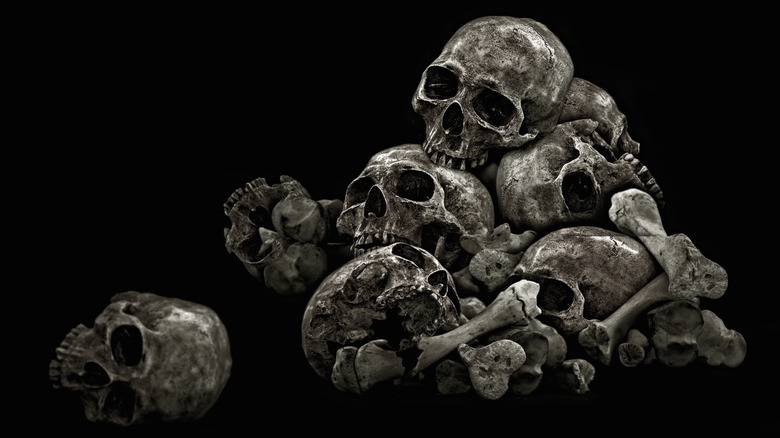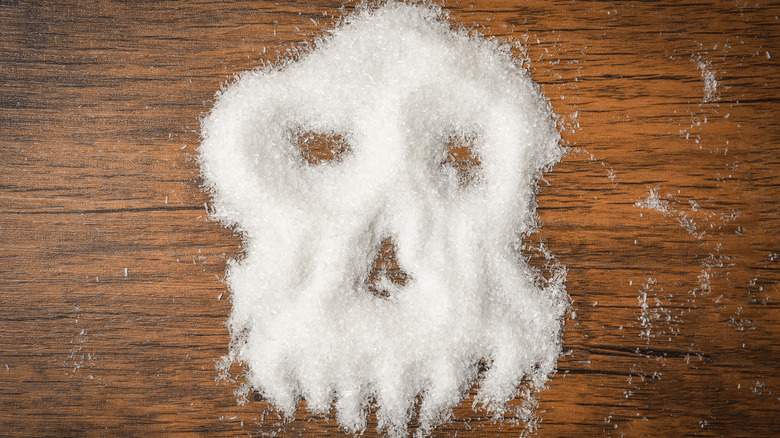How Skulls Were Once Used As Medicine
For centuries, Europeans turned to unusual medical practices to cure common symptoms and ailments. A concoction of herbs is one of the ways to treat symptoms, and in some cultures, the practice is still used to this day. However, there is one type of method back then that, fortunately, is no longer being done today — the practice of medical cannibalism, otherwise known as corpse medicine.
Healers, as doctors were called back in the olden days, dabbled in experiments that were, at times, weird by modern standards. There was a time between the Renaissance and the Victorian period when it was believed that consuming parts of humans successfully treated certain ailments, as reported by Mental Floss. Brains, fat, hair, blood, and even human excrement were used as cures. Another part believed to have healing properties is the human skull. The skull is typically crushed into a fine powder and mixed with other ingredients before being ingested by a patient.
Preparing skulls for patient treatment
Corpse medicine was supported by many, regardless of their social status. Commoners, as well as royals, were treated by ingesting different body parts. In fact, per Atlas Obscura, one of the medicines was named King's Drops — a concoction of powdered skulls and alcohol or chocolate — and King Charles II used it as a remedy. Reportedly, the king paid a professor £6,000 for the recipe to be created (via Lapham's Quarterly). Physician John French said that the skull is great for treating "falling sickness, gout, dropsy" and was a "kind of panacea" — a cure-all for several types of ailments. In his book titled "The Art of Distillation," French wrote the process for the tincture. "Take the brains of a young man that hath died a violent death," and then ground it into a fine powder and steep it in wine, according to Mental Floss.
Skull powder was also a common treatment to stop bleeding. The treatment worked, but not because a skull was used. Richard Sugg, who wrote a book on corpse medicine, said that any type of powder would be effective for stopping bleeding. By the mid-19th century, the practice of corpse medicine dwindled, and with the advancement of science, it eventually stopped completely.

